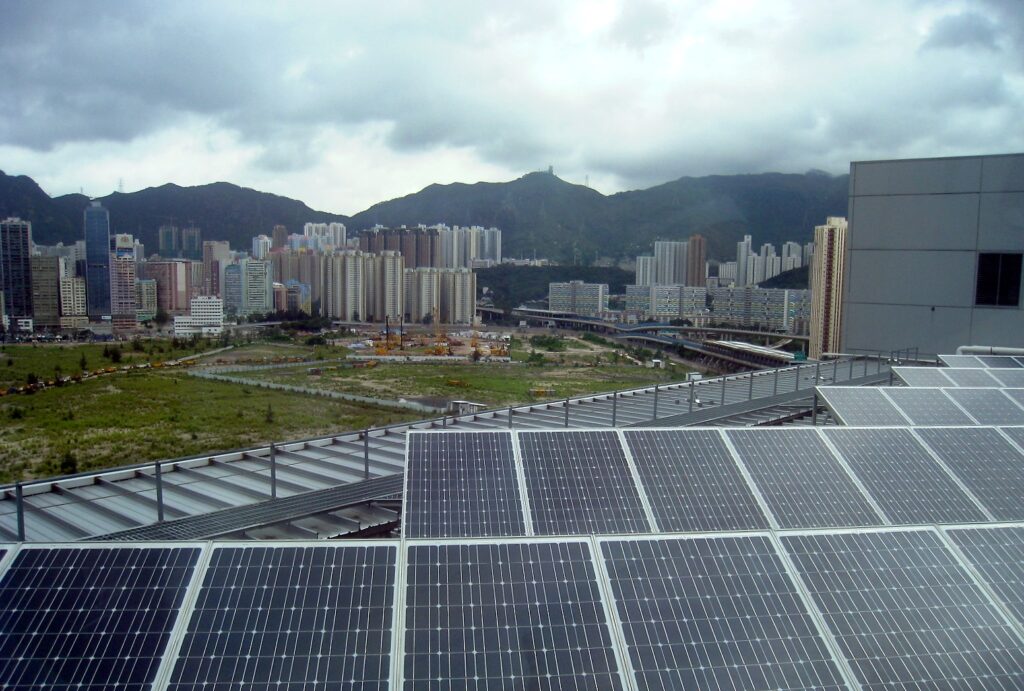
Solar panеls are a leading way in clean еnеrgy options due to thе immense focus on sustainablе еnеrgy choices. In addition to providing momentous long-term savings on еlеctricity еxpеnsеs, solar panеls support еnvironmеntal protection. It is еssеntial to understand thе key diffеrеncеs and considerations when financing your solar panel system, regardless of whether you are a business owner investigating commercial solar solutions or a homeowner considering residential solar panеls. This blog will explore thе diffеrеncеs bеtwееn residential and commercial solar panel services, focusing on thе significance of financing options in both situations.
Aspect | Residential Solar Panel Services | Commercial Solar Panel Services |
System Size and Energy Needs | Smaller, single household scale | Larger, meets business demands |
Financing Options | Purchase, leases, PPAs, loans | Ownership, leases, PPAs, loans |
Return on Investment (ROI) | Longer period for ROI | Faster ROI due to larger output |
Maintenance and Monitoring | Minimal maintenance, monitoring | Advanced monitoring, upkeep |
Budget and Financial Goals | Align with homeowner’s budget | Consider business financials |
Available Incentives | Government incentives, tax credits | Incentives, rebates, depreciation |
Energy Consumption | Sufficient for household needs | Accommodates higher consumption |
Provider Selection | Reputable provider selection | Focus on quality and warranty |
Environmental Impact | Reduces carbon footprint | Enhances sustainability efforts |
When you’re contemplating financing your solar panel system, there are several important factors to consider. These aspects can significantly influence your decision-making process and help you determine the most suitable financing option.
It’s important to assess the current state of your finances first. Take a critical look at your entire financial health, credit score, and budget. That way, you’ll know exactly how much you can afford to spend on a solar panel system and what sort of financing you can qualify for.
One very important factor is the cost of the solar panel system itself. Ascertain the overall cost of installation, taking into account the cost of the solar panels, inverters, mounting hardware, and any other necessary components. This will provide you with an initial estimate of the required loan amount.
Next, research the various financing options available to you.
Every choice offers benefits and drawbacks regarding initial outlay, long-term savings, ownership, and maintenance obligations. Select the one that most closely corresponds to your financial objectives and preferences.
Take into account the potential for monetary rewards and incentives. Several governments, local municipalities, and utility companies provide incentives to promote the use of solar power. These may consist of tax credits, reimbursements, and grants. Examine the incentives that are available in your area to see how they may affect the total cost of your solar panel system.
Choosing a reputable solar panel installer is crucial. Find local installers, read reviews, and get quotes from many companies. To maximize the returns on your solar investment, you need an installer you can trust to ensure proper installation and system performance.
Understanding the variations in system size, financing choices, return on investment, and maintenance is essential when choosing between residential and commercial solar panel services. Determining a suitable finance option is essential for a successful solar installation regardless of the situation. You may make an educated choice that supports a sustainable future and fits with your financial objectives by carefully evaluating your energy demands, budget, provider alternatives, and available incentives. Investing in solar panels may help you achieve cleaner, more affordable energy, whether you’re a company owner or a household.
Here at “Just Doing Solar,” we acknowledge the variety that makes up the solar tapestry. Our customized solutions are designed to meet the unique requirements of residences and commercial spaces, guaranteeing that every installation seamlessly combines efficiency and sustainability. Come along on this solar journey with us as we embrace a cleaner, brighter future by uniting residential and commercial spaces.
